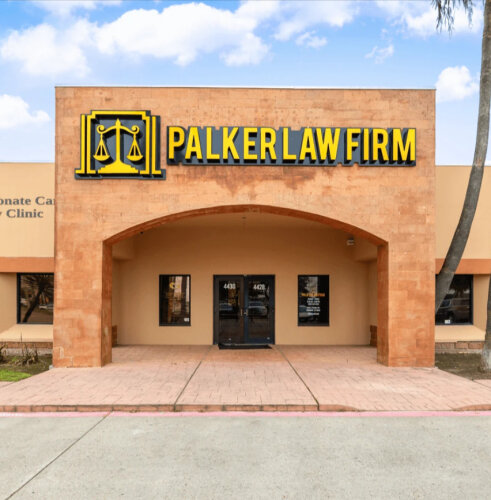Best Drugs & Medical Devices Lawyers in Edinburg
Share your needs with us, get contacted by law firms.
Free. Takes 2 min.
List of the best lawyers in Edinburg, United States
About Drugs & Medical Devices Law in Edinburg, United States
Law that governs drugs and medical devices operates at several levels. Federal agencies set nationwide standards for safety, approval and reporting. The Food and Drug Administration oversees approval and surveillance of drugs and medical devices. Federal criminal enforcement and controlled-substance rules are enforced by agencies such as the Drug Enforcement Administration. State regulators and licensing boards enforce professional standards, licensing and state-level health rules. In Edinburg, which is in Hidalgo County, local public health authorities and municipal rules can also affect how clinics, pharmacies and medical-device businesses operate. Individuals and businesses in Edinburg often need to understand how federal, Texas state and local rules interact.
Why You May Need a Lawyer
Legal issues involving drugs and medical devices are often technical and time-sensitive. You may need a lawyer if you were injured by a prescription drug, an over-the-counter medication, or a medical device that failed. Lawyers help victims pursue product-liability or medical-malpractice claims, secure compensation and preserve evidence.
If you are a healthcare provider, pharmacist or manufacturer you may need a lawyer to handle licensing disputes, regulatory compliance, recalls, inspections, civil or criminal enforcement actions, reimbursement audits, or allegations of improper prescribing or distribution. Companies often need counsel to navigate FDA submissions, 510(k) clearances, premarket approvals and state pharmacy or device licensing.
Other situations that commonly require legal help include whistleblower claims under federal False Claims Act provisions, class actions or mass tort litigation, disputes over informed consent, and defense against criminal charges for diversion or illegal distribution of controlled substances.
Local Laws Overview
Key legal elements to keep in mind in Edinburg include the following. Federal law establishes baseline requirements for drug and device approval, labeling, manufacturing quality and adverse-event reporting. The FDA handles approvals, recalls and post-market surveillance. For controlled substances, federal law and the DEA set classification and prescribing rules, while Texas enforces state controlled-substance statutes and licensing requirements for prescribers and dispensers.
At the state level, Texas licensing boards are important. The Texas Medical Board regulates physicians and related conduct. The Texas Board of Pharmacy regulates pharmacists and pharmacies. The Texas Department of State Health Services administers certain public-health and licensing programs. Texas also maintains a limited medical-cannabis program that is narrower than programs in some other states.
At the local level, Hidalgo County and the City of Edinburg enforce public-health rules, facility permits and zoning that affect clinics, pharmacies and device facilities. Local law enforcement will be involved in criminal matters, and county health authorities might assist in outbreak or adverse-event responses.
Procedural and timing issues are critical. Statutes of limitations for personal injury and product-liability claims in Texas are typically short - commonly two years from the date of injury - and special rules may apply to medical-malpractice claims and to claims against government entities. Deadlines for reporting adverse events and for filing administrative appeals are also strict. For business clients, administrative filings and licensing renewal deadlines require close attention.
Frequently Asked Questions
How do I report a bad reaction to a drug or a problem with a medical device?
If you experience a serious adverse event, contact your treating health-care provider immediately. You should also report the event to the federal agency that handles surveillance - the Food and Drug Administration - and keep copies of all medical records and communications. Reporting to the manufacturer is also important. If the event involves potential criminal conduct, notify local law enforcement.
What types of legal claims are common after an injury from a drug or device?
Common claims include product liability for defective design, manufacturing defects or inadequate warnings; medical malpractice if a provider failed to diagnose, monitor or warn you properly; and consumer-protection or fraud claims if a drug or device was misrepresented. Plaintiffs may pursue individual lawsuits, class actions or mass-tort litigation depending on the facts.
How long do I have to file a lawsuit in Texas if I was harmed by a drug or device?
Time limits vary by the type of claim, but personal-injury and product-liability claims in Texas commonly must be filed within two years of the date of injury. Medical-malpractice claims usually have a similarly short deadline and may include notice requirements. Because exceptions and discovery rules can change deadlines, consult an attorney promptly to protect your rights.
Can I sue a manufacturer even if my physician prescribed the drug or implanted the device?
Yes. Product-liability law can impose duties on manufacturers regardless of a provider's role. You may be able to bring claims against manufacturers, distributors and health-care providers depending on the cause of the injury. Attorneys will analyze causation, warnings, labeling and whether the device or drug was defective.
What should I do immediately after a bad event related to a drug or device?
Seek medical care first and follow your provider's instructions. Preserve all evidence - retain packaging, devices, prescriptions and labeling. Document symptoms and dates, preserve medical records and correspondence, and take photographs if appropriate. Do not dispose of the device or related materials until advised by counsel. Record contact information for witnesses and anyone involved.
Do state and federal rules both apply to drug and device issues?
Yes. Federal rules govern approval, manufacturing standards, labeling and nationwide surveillance. State rules cover licensing of health-care professionals, pharmacy operations, state-controlled substances, malpractice standards and some state consumer-protection laws. Local authorities may have rules about facility permits and zoning. Compliance often requires attention to all levels of law.
What if I believe a pharmacy or clinician acted improperly with prescriptions or controlled substances?
Improper prescribing or dispensing can raise civil, administrative and criminal issues. Report concerns to the relevant Texas licensing board - for example the Texas Medical Board or the Texas Board of Pharmacy - and to law enforcement or the DEA if criminal diversion is suspected. An attorney can help with board complaints, reporting, and evidence preservation.
Can a lawyer help if I am a health-care provider facing an inspection, recall or enforcement action?
Yes. Providers and businesses should seek counsel experienced in health-care and regulatory law. A lawyer can advise on responses to inspections, prepare submissions for audits or hearings, negotiate with regulators, assist with recalls and represent you in civil or criminal enforcement proceedings. Early counsel helps manage risk and protect licenses.
Are there limits on damages I can recover in Texas for injuries from drugs or devices?
Damage limits can vary. Economic damages such as medical expenses and lost wages are generally recoverable. Non-economic damages such as pain and suffering may be subject to caps in some contexts, including certain medical-malpractice cases. Punitive damages are possible in cases of egregious misconduct but require a high evidentiary standard. An attorney can explain likely damages in your case.
How do I find a lawyer who handles drug and medical-device cases in Edinburg?
Look for attorneys with experience in product liability, medical malpractice or health-care regulatory law. Local bar associations and state bar referral services can provide names. Many firms offer a free or low-cost initial consultation and work on contingency for injury cases, meaning they are paid only if you recover. Verify the attorney's experience, track record and familiarity with federal and Texas rules.
Additional Resources
Useful organizations and agencies to consult include the Food and Drug Administration for federal reporting and safety information, the Drug Enforcement Administration for controlled-substance enforcement issues, and the federal MedWatch reporting program for adverse events. At the state level consult the Texas Medical Board, the Texas Board of Pharmacy and the Texas Department of State Health Services. Locally, Hidalgo County Public Health and the City of Edinburg regulatory departments can help with permits and local rules. For legal help consider the State Bar of Texas and the Hidalgo County Bar Association for referrals and lawyer directories. Patient advocacy groups and hospital patient-advocate offices can also provide support and guidance.
Next Steps
If you need legal assistance follow these practical steps. First, get and keep medical care and document all treatment. Preserve evidence - packaging, devices, prescriptions, communications and photographs. Request and obtain copies of your medical records and billing statements. Make a written timeline of events and identify witnesses. Report the event to relevant agencies and the manufacturer as appropriate.
Second, contact an attorney who handles drug and medical-device matters as soon as possible. Prepare for an initial consultation by bringing records, photos, and a summary of events. Ask about fees, whether the attorney works on contingency, and their experience with similar cases. If you cannot afford private counsel, ask about legal aid, pro bono options or local clinics that may help.
Act promptly because statutory deadlines and reporting timelines can be short. Legal counsel can help you preserve evidence, file claims, and evaluate whether medical-malpractice, product-liability, or regulatory remedies are most appropriate for your situation.
Lawzana helps you find the best lawyers and law firms in Edinburg through a curated and pre-screened list of qualified legal professionals. Our platform offers rankings and detailed profiles of attorneys and law firms, allowing you to compare based on practice areas, including Drugs & Medical Devices, experience, and client feedback.
Each profile includes a description of the firm's areas of practice, client reviews, team members and partners, year of establishment, spoken languages, office locations, contact information, social media presence, and any published articles or resources. Most firms on our platform speak English and are experienced in both local and international legal matters.
Get a quote from top-rated law firms in Edinburg, United States — quickly, securely, and without unnecessary hassle.
Disclaimer:
The information provided on this page is for general informational purposes only and does not constitute legal advice. While we strive to ensure the accuracy and relevance of the content, legal information may change over time, and interpretations of the law can vary. You should always consult with a qualified legal professional for advice specific to your situation.
We disclaim all liability for actions taken or not taken based on the content of this page. If you believe any information is incorrect or outdated, please contact us, and we will review and update it where appropriate.










